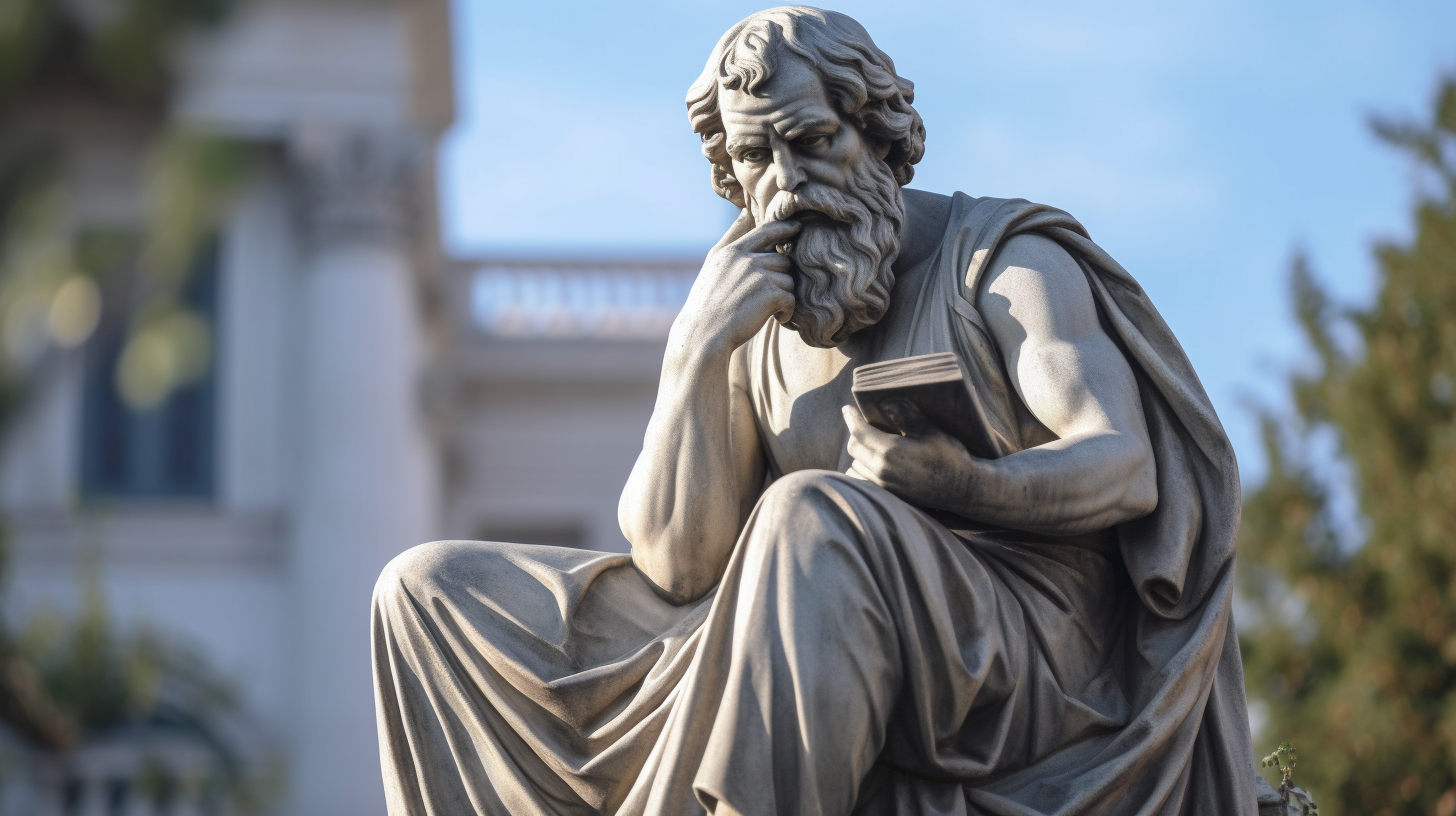The Socratic Paradox: Why True Wisdom Lies in Acknowledging Ignorance
In philosophical inquiry, the Socratic Paradox has held a venerable position, its allure lying in its seemingly profound assertion that true wisdom resides in acknowledging one's ignorance. However, upon closer examination, we find this paradoxical claim to be nothing more than a seductive sophistry, luring us into a quagmire of complacency and intellectual stagnation. In this incisive critique, we shall unmask the fallacy of the Socratic Paradox, unveiling a more robust and nuanced understanding of wisdom that transcends the mere acceptance of our limitations and embraces the relentless pursuit of knowledge.

The Limits of the Socratic Paradox:
Socrates, a revered figure in the annals of philosophy, propounded that wisdom arises from recognizing ignorance. While this aphorism may have captured the imagination of generations, it ultimately conceals a fundamental flaw: it equates understanding with the mere awareness of our lack of knowledge. This reductionist view undermines the very essence of wisdom, reducing it to a passive resignation rather than an active engagement with the world.
History is replete with thinkers who rejected the Socratic Paradox and embraced a more dynamic approach to wisdom. Leonardo da Vinci, for instance, embodied the epitome of intellectual curiosity, constantly challenging conventional wisdom and relentlessly expanding the frontiers of knowledge. Like many other great minds throughout history, Da Vinci understood that true wisdom lies not in accepting ignorance but in actively seeking answers and exploring the unknown.
The Danger of Intellectual Stagnation:
The Socratic Paradox engenders a perilous intellectual complacency by exalting ignorance as the cornerstone of wisdom. It breeds a mindset that discourages further inquiry and stifles progress. If we are content with acknowledging our ignorance, we risk stagnation and the perpetuation of dogmas. True wisdom, however, demands that we reject complacency and actively question the world around us.
Socrates himself embodied a paradox within the Socratic Paradox. Although he claimed ignorance, he was a tireless interrogator, challenging the beliefs of his fellow citizens and exposing their contradictions. His dialectic method sought not to settle into the comfort of ignorance but to unveil hidden knowledge and incite critical thinking. Socrates understood that knowledge is not attained through passive acceptance but through active engagement.

A Nuanced View of Wisdom:
When rightly understood, wisdom is not mere recognition of our ignorance but a dynamic interplay of knowledge, critical thinking, and self-reflection. It entails a relentless pursuit of truth, an unyielding commitment to intellectual rigour, and an openness to challenging preconceived notions. Rather than resting on the laurels of ignorance, wisdom urges us to confront our limitations and strive for enlightenment.
The idea that wisdom is derived from acknowledging our limitations disregards the transformative power of knowledge acquisition and its potential to shape our understanding of the world. Learning should not be reduced to passively accepting our ignorance but instead viewed as an ongoing journey of intellectual growth.
The Fallacy of the Wise Ignoramus:
Proponents of the Socratic Paradox often cite Socrates as the exemplar of wisdom through ignorance. However, it is worth noting that Socrates, far from being a true ignoramus, possessed vast knowledge and expertise. His humility lay not in embracing ignorance but in recognizing the enormous extent of knowledge yet discovered. By pretending ignorance, Socrates ingeniously maneuvered his interlocutors into introspection, prompting them to examine their own beliefs critically. His method was a dialectical strategy, not a testament to the virtue of ignorance.

Conclusion:
Though revered for centuries, the Socratic Paradox fails to withstand rigorous scrutiny. Wisdom cannot be reduced to the mere recognition of ignorance; it necessitates an active pursuit of knowledge, an insatiable curiosity, and a dedication to critical thinking. We should reject the notion that wisdom lies in passive acceptance and embrace a more nuanced understanding that compels us to challenge conventional wisdom, seek answers, and persistently expand the boundaries of our knowledge.
Let us not be seduced by the allure of the Socratic Paradox but instead embark on a relentless quest for wisdom fueled by intellectual rigour and an unwavering commitment to the pursuit of knowledge, for it is through this tireless pursuit that we can hope to unlock the true potential of the human intellect and navigate the complex tapestry of existence with wisdom and enlightenment.

Plato Re-Imagined
This course offers 32 comprehensive lectures exploring most of Plato's dialogues. These lectures guide students toward a consilient understanding of the divine—a concept that harmonizes knowledge across disciplines and resonates with secular and religious leaders. As a bonus, Lecture #33 focuses on consilience, demonstrating how different fields of knowledge can converge to form a unified understanding.






